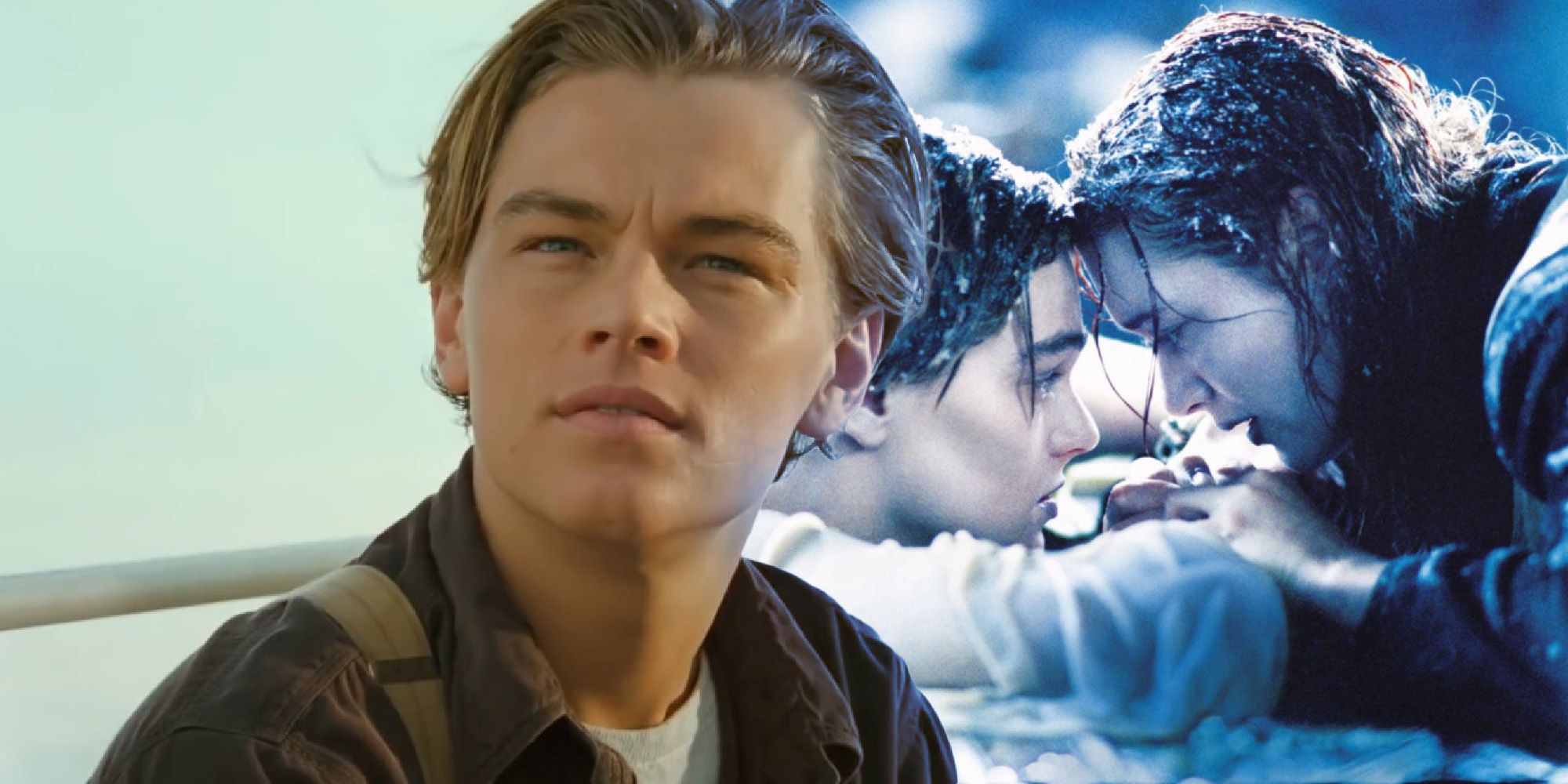Did Jack Dawson REALLY have to die in Titanic? Portrayed by Leonardo DiCaprio, the fictional character succumbs to Mother Nature's wrath in James Cameron's 1997 blockbuster, leading some viewers to still cry upon repeat viewings while prompting others to speculate about whether or not he could've been saved by his beloved Rose. However, Jack's untimely death has little to do with the size of the floating door in the Atlantic Ocean. Here's why Jack's death makes sense for the structural foundation of Cameron's Titanic screenplay.
With its 195-minute runtime, Titanic has a boatload of big moments. There's the present-day storyline involving jewel hunter Brock Lovett (Bill Paxton), and there's the central love story between Titanic passengers Rose DeWitt Bukater (Kate Winslet) and Jack Dawson (DiCaprio). Because there's so much going on - whether it's the lavish production design, the star power, or the real-life historical premise - audiences can easily be distracted and completely miss (or not fully process) passing lines of character dialogue that foreshadow what's to come. Based on how Titanic's screenplay is structured, Jack had to die not just to save Rose, but for the sake of narrative harmony.
Cameron first shows his hand, so to speak, not long after Jack wins a hand at poker (allowing the American character and his Italian friend to board the Titanic). By the 38-minute mark, the director first introduces his "never let you go" thematic premise. Jack finds Rose ready to leap from the stern and then saves her after she slips. "I won't let go," Jack says in a passing moment, which sets in motion a cycle of the characters symbolically referencing their first meeting. In the subsequent scene, it's Rose who protects Jack when authorities try to assess what just transpired (it looks like Jack may have assaulted Rose). At this point in Titanic, the character dynamics have balanced out and by the end, Jack has to die to restore harmony.
Cameron pushes forward with his "never let go" theme when Rose decides to stay aboard the Titanic. "You jump, I jump," she tells Jack, reinforcing their relationship dynamic. Later, the lovers return to the spot where they first met, shortly before the ship literally breaks in half. As the stakes increase, Cameron begins a new narrative cycle in Titanic through Jack's statement that "I won't let go," which thematically links to the controversial door scene when Jack says “You’re going to die an old lady, warm in her bed" and Rose responds with "I’ll never let go." Once again, there is narrative harmony between Jack and Rose, the result of Cameron's structural acumen as a screenwriter. When Jack ultimately dies, a new cycle begins - one in which Rose takes control of her life and decides to L-I-V-E. Just before Rose makes that choice, she literally and figuratively lets go of Jack, stating “I’ll never let go, I promise.” In 2017, Cameron explained his thematic structure and why Jack's fate made sense for the story:
"Had he [Jack] lived, the ending of [Titanic] would have been meaningless... The film is about death and separation; he had to die."
Jack and Rose's love story is anchored by Cameron's tight screenplay. Without a strong story structure in place, the film wouldn't resonate as deeply because there wouldn't be thematic reminders for the audience to connect with, if only subconsciously. Sure, Jack could've theoretically rested next to Rose on the big door, but it's heavily implied that both characters are physically and psychologically exhausted. Jack initially tries to will himself aboard the door but quickly realizes that it's going to tip. Titanic had to end with Jack dying because the story was structured around the "never let go" premise. In a final twist, Rose symbolically offers her heart to Jack by throwing the "heart of the ocean" into the Atlantic. Once again, there is narrative harmony for Jack and Rose.


